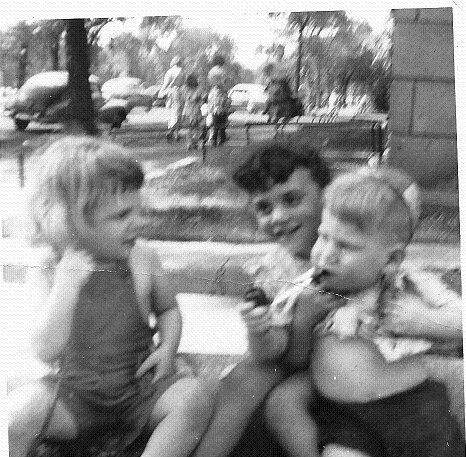 Are baby boomers the last generation to latch onto crossword puzzles? If I were in charge of education, I’d make it so that once kids learned basic reading and writing skills, they’d be obligated to take a course in word puzzles. The class would be geared toward teaching them how to recognize word and sentence construction by doing all the different type of puzzles. For example, When they’d see a four letter word that began with a t and ended with a t, they would know instinctively that more than ninety percent of the time, it would be ‘that’. They would learn the rhythm of word flow and usage. They would also appreciate being able to complete the puzzle and feel a sense of accomplishment. This makes more sense than forcing them to read a novel and try to get them to explain what the author meant. Who cares what the author meant!
Are baby boomers the last generation to latch onto crossword puzzles? If I were in charge of education, I’d make it so that once kids learned basic reading and writing skills, they’d be obligated to take a course in word puzzles. The class would be geared toward teaching them how to recognize word and sentence construction by doing all the different type of puzzles. For example, When they’d see a four letter word that began with a t and ended with a t, they would know instinctively that more than ninety percent of the time, it would be ‘that’. They would learn the rhythm of word flow and usage. They would also appreciate being able to complete the puzzle and feel a sense of accomplishment. This makes more sense than forcing them to read a novel and try to get them to explain what the author meant. Who cares what the author meant!
I like to play word games. No, it doesn’t mean that I like to confuse people with double entendres. Instead, I mean doing crossword puzzles of all types. There are your standard crossword puzzles, acrostics, cryptograms and anagrams. Anagrams are the poor man’s palindrome.
You know what a palindrome is, right? That’s where a sentence can be read the same way backward and forward such as in “a man, a plan, a canal, panama.†An anagram is taking a word and rearranging the letters so that it can also spell another word. Hence, eager can be turned into agree. Or antsy into nasty. It should be noted that I am not always eager to agree and sometimes antsy to be nasty.
Furthermore, I would not allow the use of calculators or computers in a classroom. I’d tell the students to learn the multiplication table by heart like I did. You want to take notes? Use a pen and paper and not a laptop or Ipad. You want to know the basic outline to a story or what the author had in mind, go buy the Cliff Notes, like I did. When you are in high school, who wants to read a three hundred and fifty page book anyway?
I tried some of my other theories on education a couple of times. The first was in 1979 when I was taking computer training courses after having already received a BA in college five years earlier and been fired from my first real job. To supplement meager earnings, I was a substitute teacher in the north suburbs of Chicago. In those days, and I don’t know what the rules are now, you didn’t need to have a teaching certificate. All you had to do was prove that you were a college graduate and had the necessary coinage to pay for the county official to approve your application.
I registered with a few schools. One was the New Trier School District which at the time had two schools. New Trier East was in Winnetka, Illinois and had been home to a few illustrious alumni, including, I believe, Rock Hudson. It was known for being the creme de la creme, with the brightest student population. For some stupid reason, I agreed to come out into the snowy cold one morning to New Trier to substitute an English class.
The students greeted me with disdain. I think they smelled a rat when I asked them what was on the agenda. They told me that they had been discussing the theme of a certain book. Naturally, I had never read it nor even knew what the heck a theme was. I did the adult thing and turned it around and asked them, “what do YOU think the theme is?” And to anyone and everyone who replied, I said, “good answer”, like I was the host of Family Feud.
A few years later already into the computer racket and having experienced my first exposure to employers who habitually write bad checks, I decided to go with a sure thing and agreed to teach at a quasi-business college in the Chicago Loop. The students were all participants in the CETA program, which was a government sponsored attempt at trying to help the less fortunate get further education even though they were not college material.
The highlight of the summer I spent doing this was the day a student was bragging that she had a granddaughter. I said to her that she didn’t look old enough and she blushed. She said, “how old do you think I am?” I told her and she shouted with pride, “heck no, I’m 34.” I then did some quick math and said, “how could you be 34 and already have a grandchild? When did you get married, at sixteen?” She replied, “Aw, come on, who said I was married?”
Thirty years later, I’m wondering how many great, great grandchildren she has. You think any of them do crossword puzzles in their spare time?
